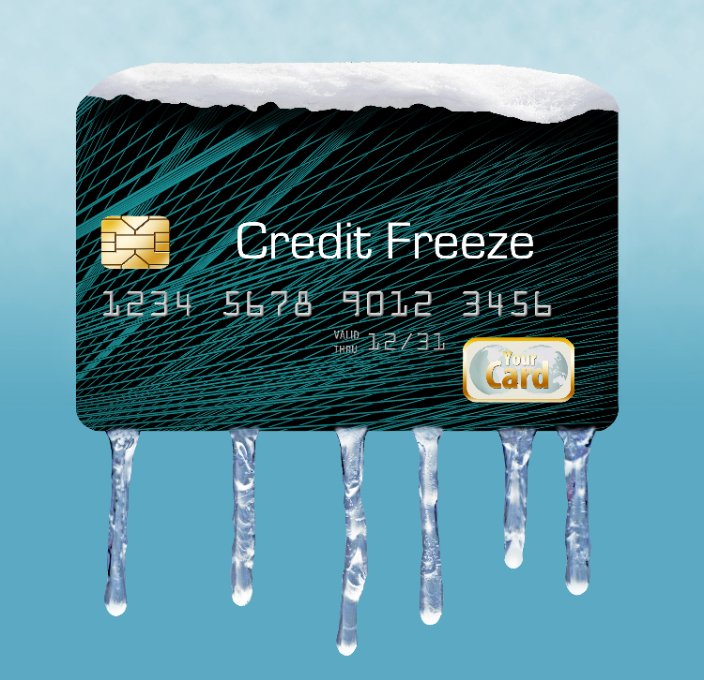
For many, credit reports and credit scores are a mystery. There are so many misconceptions surrounding credit that we often believe things that are far from the truth. It’s important to debunk these lies so that you can improve your financial outlook and not make costly mistakes. Here are 8 common lies about your credit report that many people believe, and why you should stop falling for them. With the right knowledge, you can get your credit report on the right track.
1. “Checking your own credit hurts your score.”
Pulling your own credit report is considered a soft inquiry, which does not affect your credit score. In fact, it’s a smart habit to check your credit regularly. If there are any errors, you’ll want to know immediately. Plus, regularly monitoring your report can help you make adjustments to things like your credit card spending habits, if it is bringing down your score. Be aware that hard inquiries, like applying for a new credit card, will show on your credit report and affect your score.
2. “You only have one credit report.”
There are three major credit bureaus (Equifax, Experian, and TransUnion), and each may have slightly different information. You have three credit reports, not just one. While your score probably won’t fluctuate significantly among the credit bureaus, it’s important to monitor all three. You can choose a credit monitoring service that pulls all your reports.
3. “Your report and credit score are the same thing.”
Your credit report is a record of your credit history. Your credit score is a numerical value based on that report. They’re closely related, but not the same. Both are used when you apply for credit cards or loans. Your credit score and report demonstrate your creditworthiness to lenders.
4. “Paying off a debt removes it from your report.”
Even after paying off a debt, it can remain on your report for up to 7 years if it was negative (like a late payment or collection). Positive accounts may remain longer. While it may seem hard to recover from a derogatory mark on your credit report, it will fall off in time. In the meantime, you can rebuild your credit by making on-time payments and keeping your credit utilization low. Over time, positive activity will help outweigh past negatives in your credit profile.
5. “Closing a credit card helps your credit.”
Closing a card can hurt your score by reducing your available credit. This can raise your credit utilization ratio. It can also potentially shorten your credit history. The number of closed accounts will appear on your credit report. Lenders often prefer to see long-standing accounts that demonstrate responsible credit use over time. Unless there’s an annual fee or another strong reason, keeping the account open is usually better for your score.
6. “You can’t fix credit report errors.”
You can and should dispute errors. Credit bureaus are legally required to investigate disputes and correct any inaccuracies under the Fair Credit Reporting Act (FCRA). If you suspect a discrepancy, you can file a report with that credit bureau. You can also submit supporting documentation to strengthen your case. Correcting these mistakes can significantly boost your credit score and improve your financial opportunities.
7. “You must carry a balance to build credit.”
You do not need to carry a balance or pay interest to build your credit. Simply using your credit card and paying it off on time is enough to build good credit. In fact, you should pay off your cards every billing cycle to avoid paying interest and lower your credit utilization and revolving balances. This ultimately can improve your score. Carrying a balance only leads to unnecessary interest charges without offering any credit-building advantage.
8. “Your income is listed on your credit report.”
Your income is not part of your credit report. Lenders might ask for income during applications, but it’s not something the credit bureaus track. If you have a higher income, you may get a bigger credit limit or be approved for a larger loan. But nowhere on your report does your income show.
Debunking Credit Report Myths
Believing myths about your credit can cost you money, opportunities, and peace of mind. Understanding the truth empowers you to take control of your financial health. By debunking these common lies, you can make smarter credit decisions, protect your score, and build a stronger financial future. Don’t let misinformation hold you back — stay informed, check your reports regularly, and take action when needed. Your credit is one of your most powerful financial tools — treat it that way.
Read More
How to Afford Home Upgrades on a Tight Budget: Real Numbers You Can Work With
7 Bizarre Texas Marriage Laws (Including One Where You Don’t Even Have to Show Up)

Teri Monroe started her career in communications working for local government and nonprofits. Today, she is a freelance finance and lifestyle writer and small business owner. In her spare time, she loves golfing with her husband, taking her dog Milo on long walks, and playing pickleball with friends.



 Where do you get your money? Why from the loan, of course. You’re gonna pay it off anyways, right. So, you’ll just have to scrape together a bit more for the next payment, that’s all. Except. Except, you don’t scrape together that money. You use the rest of the funds to pay the next few months payments, but you come up short. You still need to scrape a few dollars together to make the last few payments. How’d this happen?!? It must have been those parasitic lenders, right?
Where do you get your money? Why from the loan, of course. You’re gonna pay it off anyways, right. So, you’ll just have to scrape together a bit more for the next payment, that’s all. Except. Except, you don’t scrape together that money. You use the rest of the funds to pay the next few months payments, but you come up short. You still need to scrape a few dollars together to make the last few payments. How’d this happen?!? It must have been those parasitic lenders, right?